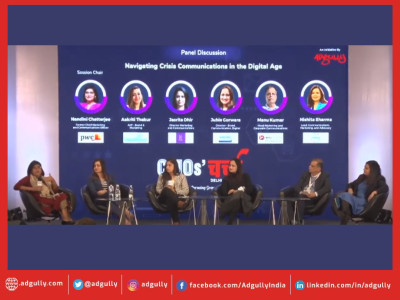Effective crisis management in the social media era
Crisis management in the age of social media has become increasingly challenging due to the rapid spread of information and the ability for individuals to voice their opinions and concerns publicly. To effectively manage a crisis in this digital landscape, organisations need to adopt an agile and transparent approach.
The third edition of IMAGEXX Summit and Awards 2023, held on June 09, 2023 hosted a panel discussion on the topic, ‘Crisis management in the age of social media: The need to be Agile and Transparent’. Chaired by Amit Mukherjee, Senior Assistant Editor, The New Indian Express, the panellists included:
Kamna Hazrati, Founder, KH Advisory
Nandini Chatterjee, Chief Marketing & Communications Officer PwC India
Nivedeeta Moirangthem, Country Communication Manager, IKEA India
Amit Mukherjee commenced the discussion by introducing the topic and said, “If we look at the entire concept of crisis, it has changed in the last 10-15 years, and all corporations are looking at redefining everything from the way they have been defining crisis. Crisis in the new age involves when everything is out on Twitter and reputation damage is being done within a matter of seconds. So, people who are handling crisis in the new era need to be agile and active 24x7.”
“As everything has gone now digital, crises are also in digital platforms. It doesn’t take much time to dent your reputation. Crisis management now, as compared to 10 years back, has a much bigger role to perform. One needs to understand what plays out well,” he added.
During the discussion, Mukherjee posed the question, “How has the entire transition in dealing with crises happened?”
Nandini Chatterjee noted that while a lot has changed, some things have remained the same. Firstly, she highlighted the complexity introduced by the digital world, which is widely acknowledged and requires no further elaboration. Secondly, due to the interconnectedness of the world, an incident occurring in a remote corner of a country can quickly escalate and have repercussions in some other part of country. The monitoring of events across 157 countries has become a necessity. The third aspect is the vital importance of real-time monitoring. Lastly, one cannot undermine the significance of virtual influencers and their management in crisis situations.
Chatterjee stressed that having a core action team, protocols, processes, designated spokespersons, policies, and advance scenario planning are essential components in crisis management.
Nivedeeta Moirangthem, too, stressed on being prepared to avoid future crises. “Planning alone may not be sufficient; one must be ready to face crises as they arise. Particularly in customer-centric situations, constant preparedness and agility are essential. It is important to keep the entire organisation, including not just the communication and social media teams but also co-workers in online and on-site roles, aware and prepared to work effectively with customers. The issues can be genuine, or situations may arise where customers become angry, necessitating different approaches in resolving them. These are some of the regular challenges we are working with,” Moirangthem added.
Kamna Hazrati added here, “For start-ups, the impact is much higher if they lack the proper structure. As a start-up, if there is no proper strategy to manage crises, it can have a direct impact on your revenue bottomline and your reputation.”
These are edited excerpts of the panel discussion. For the entire discussion, please watch below:


















Share
Facebook
YouTube
Tweet
Twitter
LinkedIn